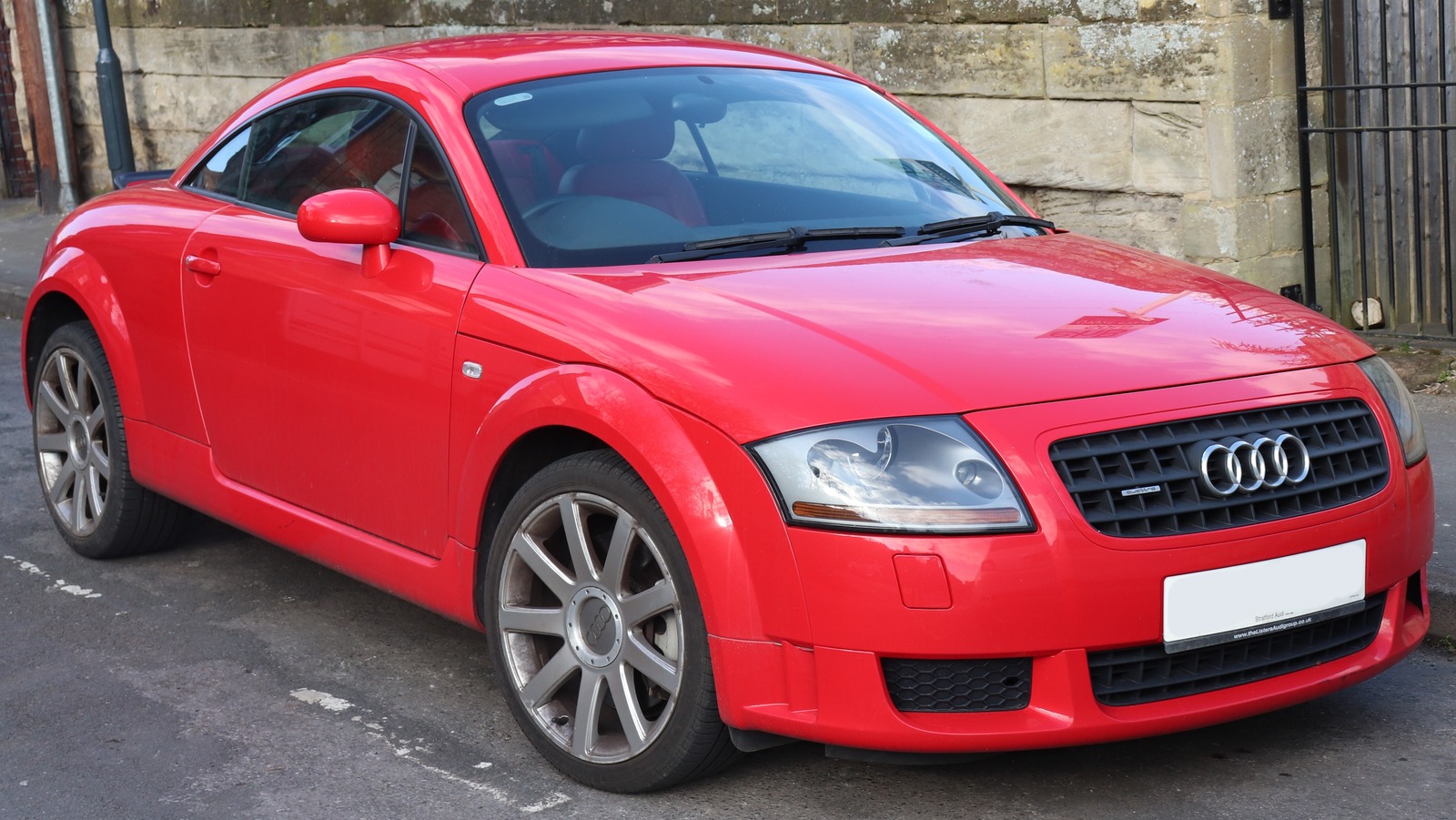Audi’s complicated history reaches back to the late 19th century, when August Horch established a company in his name in Cologne, Germany. Ten years later, he left that company after an executive-level dispute and formed another eponymous auto manufacturer headquartered in Zwickau. That company became Audi in 1910 and made its first car that same year. Audi teamed up with three other German manufacturers to form Auto Union in 1932, and that enterprise became part of the Volkswagen Group after World War II. Daimler-Benz bought a controlling share in Auto Union in 1958, but Volkswagen reacquired Auto Union less than a decade later, and the Audi name reappeared in 1965 with the launch of the F102. The brand evolved into VW’s luxury and performance marque, a space it now shares with corporate cousins Porsche, Lamborghini, Bugatti, and Bentley.
Advertisement
For a quarter-century, Audi made the TT, a sporty coupe and roadster that had a rounded-off design that distinguished it from the rest of the models that wore Audi’s interlocking rings. The TT was developed as a concept in the mid-’90s and named after the Isle of Man Tourist Trophy, and the model went into production in 2+2 coupe form in 1998. The TT Roadster appeared the next year, sans the rear seats. The TT went through a few design refreshes over its 25-year lifespan, but Audi dropped it after the 2023 model year amidst declining sales and the VW Group’s focus on transitioning to electric vehicles.
[Featured image by Vauxford via Wikimedia Commons|Cropped and scaled|CC-BY SA 4.0]
TT sales peaked in the mid-2010s
The TT was an immediate hit after its European debut, selling more than 70,000 units in its first two years on the market, according to Good Car Bad Car. A later release in North America brought more modest initial sales, although both markets saw significant bumps in the mid-2000s and around 2016. By 2021, sales had dipped below 6,000 units in Europe and 1,000 in the United States, and looming bans on internal combustion-powered vehicles had forced a shift in automakers’ priorities. By then, Audi’s position of prominence as the VW group’s premier brand was also being diluted by the acquisitions of other elite marques. VW picked up Lamborghini, Bentley, Rolls-Royce, and Bugatti in 1998 and took control of Porsche in 2012.
Advertisement
In the brief stretch since the TT’s discontinuation, the Volkswagen Group has shown that it is clearly committed to producing more electric vehicles under the Audi badge. The 2025 Q6 E-Tron rides on the Premium Platform Electric (PPE) platform shared with the Porsche Macan, although it wouldn’t be launched in the United States until later in 2024. The expected price tag of over $100,000 for the high-performance SQ6 version is enough to buy a garage full of used TTs, though. Classic.com reports an average sale price of just over $12,000 for first-generation TTs over the past five years, and a typical second-gen model goes for about twice that much.
